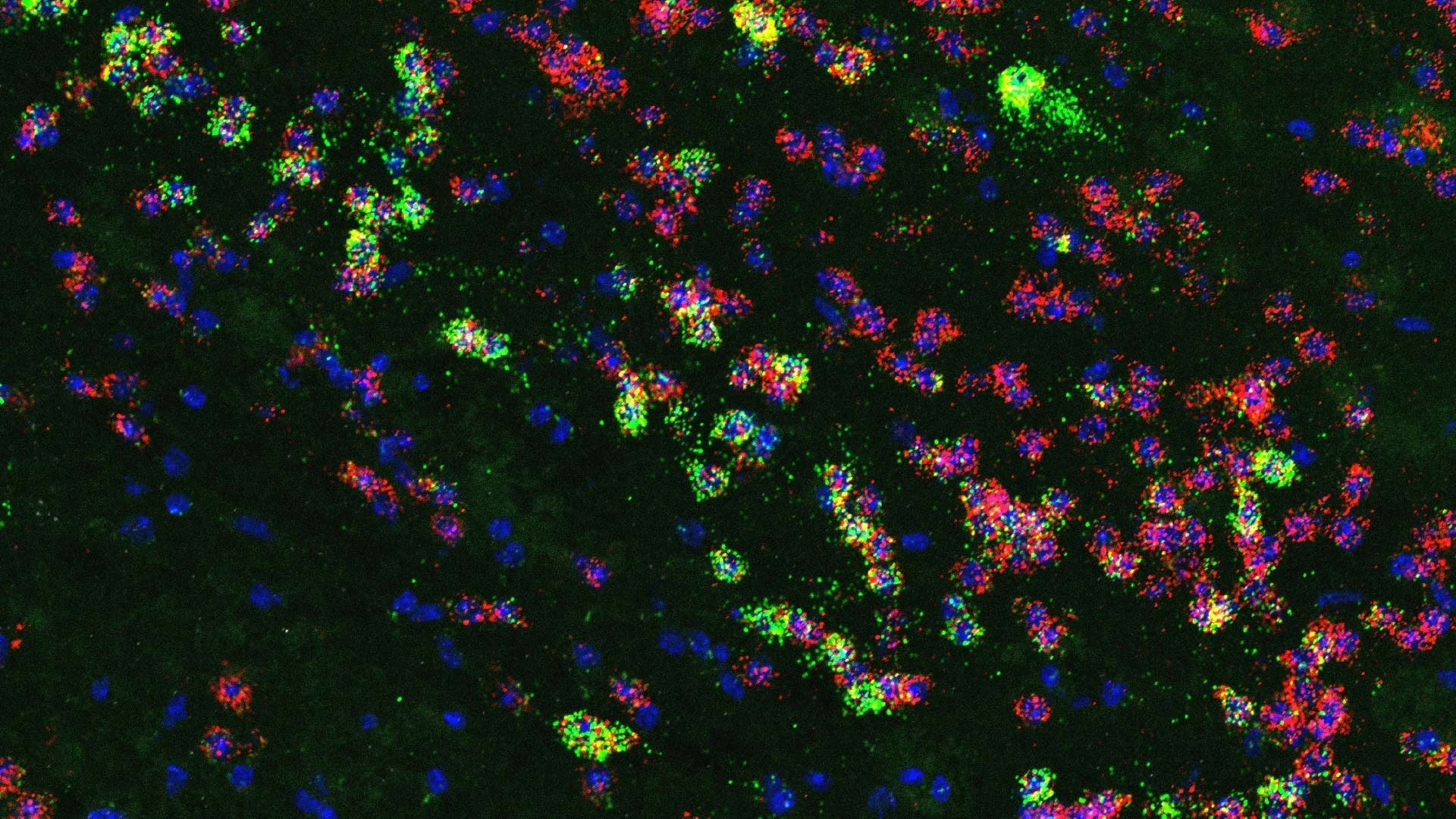The amygdala, a part of the brain, is in charge of strong emotions such as fear. Scientists have shown that the amygdala may be at fault for overeating. Professor Bo Li of Cold Spring Harbor Laboratory (CSHL) uncovered a set of neurons in the amygdala that motivates mice to consume fatty or sugary foods even when they are not hungry. Therapeutics that target these neurons might result in new obesity treatments with low side effects.
 CSHL Professor Bo Li has discovered a group of neurons, shown here in green, in the brain’s amygdala that drive mice to eat even when they are not hungry. The neurons activate in response to fatty and sugary foods and trigger a behavior called hedonic eating—when mice eat for pleasure instead of survival. Image Credit: Bo Li Lab/CSHL/2022.
CSHL Professor Bo Li has discovered a group of neurons, shown here in green, in the brain’s amygdala that drive mice to eat even when they are not hungry. The neurons activate in response to fatty and sugary foods and trigger a behavior called hedonic eating—when mice eat for pleasure instead of survival. Image Credit: Bo Li Lab/CSHL/2022.
Mice, like most individuals, like diets that are heavy in fat and sugar. They might eat these delicacies for enjoyment rather than survival. This hedonic eating behavior is triggered by the neurons Li and his colleagues researched
Even if the animal is supposed to stop eating because they are already full, if those neurons are still active, it can still drive those animals to eat more.”
Bo Li, Professor, Cold Spring Harbor Laboratory
According to Li, hardly anyone succeeds in long-term weight management when treating obesity. Metabolic processes in the body frequently reverse any gains made. Therapeutics can improve the chances of successful treatment, yet many drugs have undesirable side effects.
The medications currently available to aid weight management can cause significant side effects. So, a more targeted approach is needed. Identifying the brain circuitry that controls eating is important for developing better treatment options for people who struggle to control their weight.”
Bo Li, Professor, Cold Spring Harbor Laboratory
When the researchers turned off the specific neurons, the mice were no longer attracted to the fatty, sugary items that had previously enticed them.
They just happily ate and stayed healthy. They not only stopped gaining weight, but also seemed to be much healthier overall.”
Bo Li, Professor, Cold Spring Harbor Laboratory
By turning off these neurons, researchers were able to minimize overeating and safeguard against obesity. It also increased the animals’ physical activity, which resulted in weight loss and improved metabolic health.
Li and his colleagues are looking into methods for controlling the neurons that cause hedonic eating. The next step, he adds, is to figure out what makes these neurons so sensitive to diverse types of food. He expects that this collaboration will result in novel anti-obesity therapeutic strategies.
Li and CSHL Associate Professor Stephen Shea collaborated their neuroscience skills with CSHL Assistant Professor Semir Beyaz’s gut and nutrition research expertise for this study. They also worked with CSHL Assistant Professor Tobias Janowitz, a metabolism and endocrinology expert. It is part of a multidisciplinary endeavor at CSHL to investigate the links between the brain and the body.
Source:
Journal reference:
Furlan, A., et al. (2022) Neurotensin neurons in the extended amygdala control dietary choice and energy homeostasis. Nature Neuroscience. doi.org/10.1038/s41593-022-01178-3.